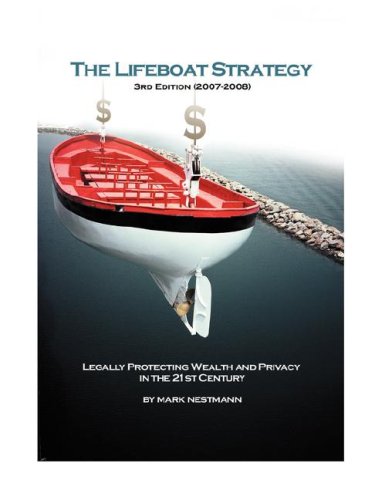If you’re an American, you have no constitutional right to privacy. And in the internet age, our need for privacy has waned. We routinely release information once considered intensely personal for public consumption. We document every moment of our lives via webcams or blogs. And we live vicariously through participants in reality television shows. Anyone can build an audience on social media and publish minute-by-minute updates of their most mundane activities.
But over the years, the Supreme Court has ruled that you have a right to be free of government surveillance in situations in which you have a “reasonable expectation of privacy.” This includes matters relating to marriage, sex, contraception, and education. You also have a right to anonymous political speech.
However, until last week, you had no reasonable expectation of privacy with respect to most records held by third parties, unless a specific federal law applied. For instance, you have no expectation of privacy with regard to your bank records, because, according to the Supreme Court:
The depositor takes the risk, in revealing his affairs to another, that the information will be conveyed by the person to the government.
Police can access your banking and financial records without a warrant. Similarly, records of who you call on your phone, or who calls you, have no protection. As well, you have no expectation of privacy in your internet browsing activity and records of who you correspond with by email.
 The Lifeboat Strategy
Best Price: $45.58
Buy New $145.95
(as of 09:40 UTC - Details)
The Lifeboat Strategy
Best Price: $45.58
Buy New $145.95
(as of 09:40 UTC - Details)
Recently, police have used cell phone data to estimate an individual’s location at the time a crime was committed. Location tracking does not require a cell phone user to actually make a call. Sending a text message, browsing the internet, or sending an email all require data to be transmitted through a cell tower. While location data is only approximate in rural areas, you can be continuously tracked within 20 meters of your actual position in a city.
A majority of the justices on the Supreme Court find this trend deeply troubling. And on June 22, the court ruled in a 5-4 decision (Carpenter vs. US) that you may have a reasonable expectation of privacy that your cell phone location data will remain private. That’s despite the fact that information is held by a third party – your cell phone service provider.
The majority opinion of Chief Justice John Roberts declared;
“A person does not surrender all Fourth Amendment protection by venturing into the public sphere … We decline to grant the state unrestricted access to a wireless carrier’s database of physical location information… We hold that an individual maintains a legitimate expectation of privacy in the record of his physical movements as captured through [cell tower locational data].”
The case dealt with the cellphone records of an armed robbery suspect, Timothy Carpenter. After obtaining these records, police were able to place Carpenter near the scene of several armed robberies in the period the records covered. This evidence was used to convict him of armed robbery.
Prosecutors believed that Carpenter had no expectation of privacy in his locational data, since he voluntarily shared it by using his cell phone. This concept is known as third-party doctrine and has been upheld in a variety of cases in which individuals share personal information with others. Chief Justice Roberts, expressing concern over the ability of investigators to continuously track the location of individuals through their cell phone movements, attempted to carve out an exception to the third-party doctrine.
 How to Achieve Persona...
Best Price: $2.94
Buy New $1.98
(as of 07:45 UTC - Details)
Three of the four dissenting justices worried that the exception could eventually become the rule, and that the Carpenter decision could spell the end of the third-party doctrine. The fourth dissent, by newly-arrived Justice Neal Gorsuch, went even further. It argued that the third-party doctrine be scrapped altogether. Gorsuch classified his reasoning as a dissent, because Carpenter’s lawyers never made the property-rights argument that Gorsuch advocates.
How to Achieve Persona...
Best Price: $2.94
Buy New $1.98
(as of 07:45 UTC - Details)
Three of the four dissenting justices worried that the exception could eventually become the rule, and that the Carpenter decision could spell the end of the third-party doctrine. The fourth dissent, by newly-arrived Justice Neal Gorsuch, went even further. It argued that the third-party doctrine be scrapped altogether. Gorsuch classified his reasoning as a dissent, because Carpenter’s lawyers never made the property-rights argument that Gorsuch advocates.
Justice Gorsuch believes, as I do, that you have inherent property rights in data gathered on you or about you by a third party. Under that theory, Carpenter had a property interest in the location data collected by his cell phone service provider. Gorsuch argues that the third-party doctrine is fundamentally at odds with the plain language of the Fourth Amendment to the Constitution, which holds:
The right of the people to be secure in their persons, houses, papers, and effects, against unreasonable searches and seizures, shall not be violated, and no Warrants shall issue, but upon probable cause, supported by Oath or affirmation, and particularly describing the place to be searched, and the persons or things to be seized.
Roberts and the majority he cobbled together refused to go that far. They contend that the third-party doctrine is alive and well but that police may not harvest the huge quantities of location data we inadvertently share on our cell phones without a warrant.
The Carpenter case is a huge victory for privacy. And long-term, it could lead to a legal conclusion I’ve long advocated: that you should have a property right in the personal data that others hold, even if you turn it over willingly.
Reprinted with permission from Nestmann.com.





